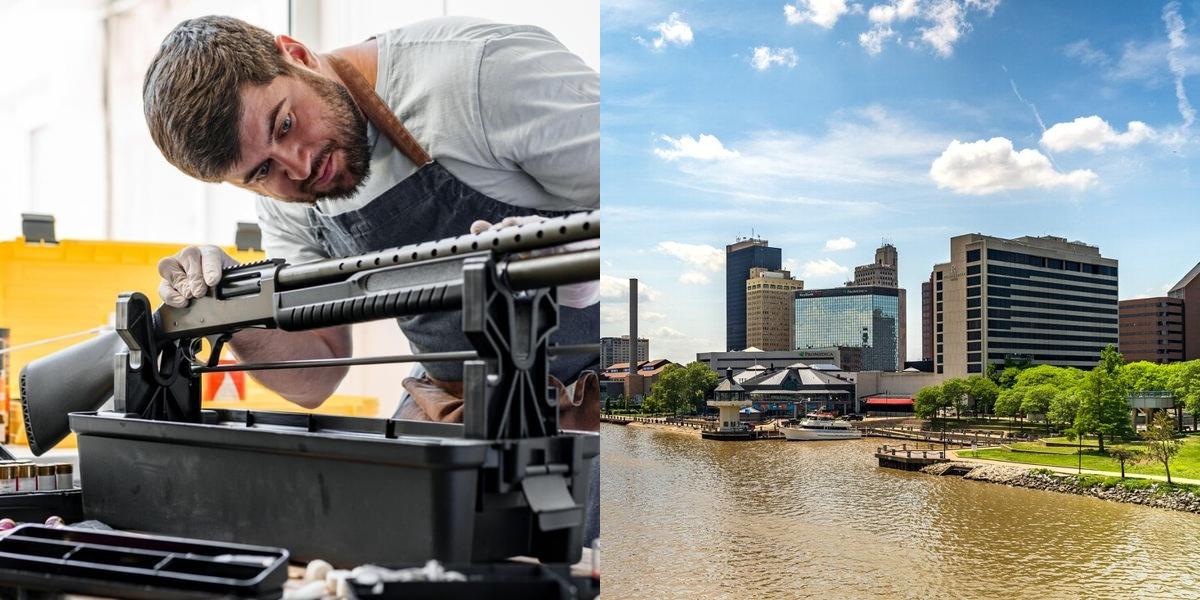How to Become a Gunsmith in Ohio

Gunsmiths are skilled professionals who specialize in the maintenance, repair, and customization of firearms. They possess a deep understanding of firearms, including their various components and mechanisms. If you're interested in pursuing a career as a gunsmith in Ohio, here are the key points you need to know:
Key Points
- Median Salary: $46,800 per year (as of May 2024)
- Education Requirements: High school diploma or GED; formal gunsmithing program recommended
- Licensing: Federal Firearms License (FFL) required
- Job Outlook: Projected 6% decline from 2023 to 2033; however, approximately 91,800 job openings expected annually due to workforce replacement needs
Where to Find Gunsmith Classes in Ohio?
If you're looking to pursue gunsmithing classes in Ohio, Dreambound is a valuable resource. Dreambound connects students with vocational training programs, including gunsmithing courses, offered by reputable institutions. By visiting Dreambound's website, you can easily find and compare gunsmithing classes near you, ensuring you receive the education and training necessary to excel in this field.
Career Paths and Opportunities after Becoming a Gunsmith
Becoming a certified gunsmith opens up several career paths and opportunities. Here are some potential career paths you can explore:
- Gun shop gunsmith: Performing repairs, modifications, and customizations on firearms for customers.
- Firearm manufacturer: Assisting with the assembly, testing, and quality control of firearms.
- Custom gunsmith: Creating unique and personalized firearms tailored to clients' specifications.
- Law enforcement armorer: Maintaining and repairing firearms for law enforcement agencies.
- Military contractor: Working on a range of firearms for military applications.
- Firearms instructor: Teaching others about firearm safety, handling, and maintenance.
Frequently Asked Questions
What degree do you need for gunsmith?
Answer: While a specific degree isn't mandatory, completing a formal gunsmithing program from a vocational or technical school is highly recommended to gain the necessary skills and knowledge.
What degree is best for gunsmithing?
Answer: A diploma or certificate in gunsmithing from an accredited institution is considered ideal for entering the field.
How long does it take to become a Gunsmith?
Answer: The duration varies depending on the program and experience. Formal gunsmithing programs can range from several months to two years. Gaining practical experience through apprenticeships or internships can further enhance your skills.
Final Thoughts
Becoming a certified gunsmith requires a combination of education, training, and practical experience. By following the steps outlined in this blog, you can start your journey towards a rewarding career in gunsmithing. Whether you choose to work in a gun shop, for a firearm manufacturer, or start your own business, the opportunities in the field are vast. Remember to stay up to date with industry trends and continue learning and refining your skills to stay competitive in the job market. Good luck on your gunsmithing journey!
Are you thinking about a job change or wanting to learn more about different career paths? Feel free to check out these additional articles:

Jessa Guzon is a member of the School Growth and Customer Success Team in Dreambound. She finds joy in assisting both schools and students in reaching their goals by answering their queries and connecting them with the right people. Outside her professional role, Jessa is a happy-go-lucky person with a thirst for adventure.



